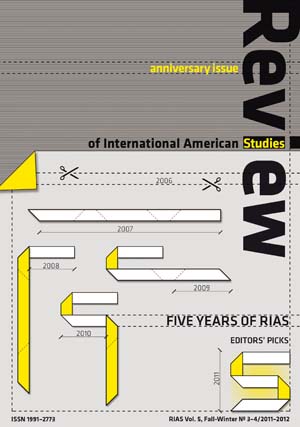OF INDIANS AND MODERNITY in Gloria Anzaldúa’s "Borderlands/La Frontera: The New Mestizas"
OF INDIANS AND MODERNITY in Gloria Anzaldúa’s "Borderlands/La Frontera: The New Mestizas"
Author(s): Tace HedrickSubject(s): Language and Literature Studies, Studies of Literature, Other Language Literature, Cultural Anthropology / Ethnology
Published by: Wydawnictwo Uniwersytetu Śląskiego
Summary/Abstract: In this essay, I suggest that the work of Chicana lesbian feminist writer Gloria Anzaldúa, especially in her 1987 "Borderlands/La frontera: the New Mestiza", belongs to a longstanding history of Latin American as well as United States Chicano conversations about race, sexuality, and modernity. Her late 20th century Chicana lesbian-feminist viewpoint is often read as the antithesis of a modernist viewpoint, and indeed it provides a lens through which modernist ideas are refracted. Yet much of the language she uses to appeal to the fusion or ‘hybridity’ of (racial) opposites and her portrayal of ‘the Indian woman in us’ (1987: 22), are found in Mexican discourses of mestizaje and indigenismo in the early 20th century as well as, later, in Chicana(o) appropriations of the same conversations from the mid-1960s through the end of the 1970s. These are discourses which are modernist at their heart, not as an aesthetic category but as a socio-historical one which founds its worldview on the assumption of conceptual differences between ‘modern’ and ‘primitive’. Anzaldúa’s invocation, in "Borderlands", of the Mexican politician and thinker José Vasconcelos’ 1926 "La raza cósmica" ("The Cosmic Race") should alert us to the place of her work in the history of modernist thinking about race and sex in the Americas, particularly in Mexico.
Journal: Review of International American Studies
- Issue Year: 5/2012
- Issue No: 3-4
- Page Range: 101-128
- Page Count: 28
- Language: English

